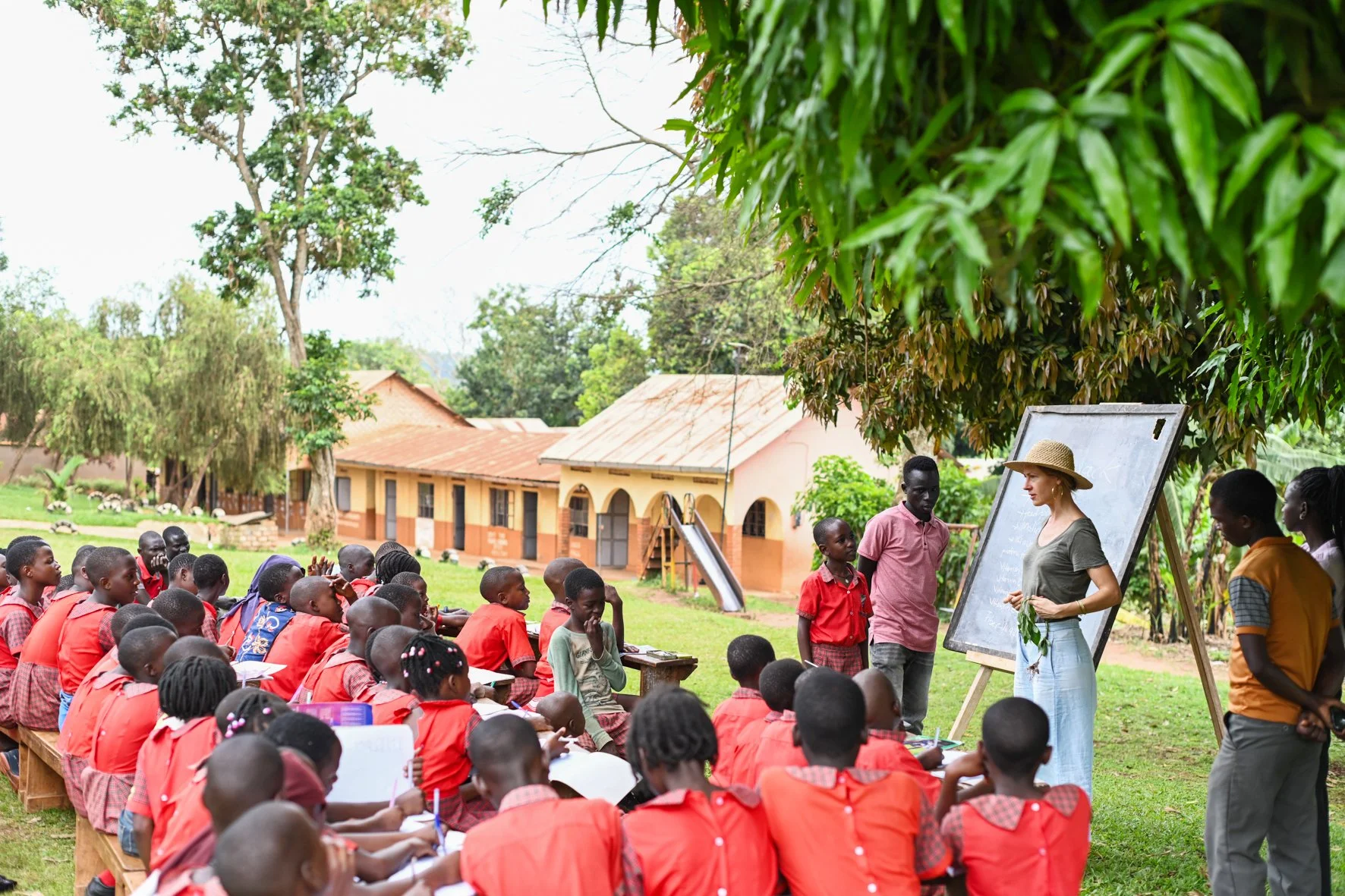
The Story behind BODY&SOIL
Maria Schiffer traveled to Africa for the first time on her own in 2017. Until then, she hadn’t had much exposure to the continent but was eager to get to know it. As a photographer, she had the opportunity to shoot for magazines while also traveling to several African countries over the course of six months.
Without a plan and with great respect, she journeyed through South Africa, Rwanda, Senegal, Ghana, and Zambia. During this trip, she realized that the image Northern Europeans hold of Africa does not match the reality of the continent. This sparked the idea to present a new image of Africa to others. Maria created a cookbook about Africa. Cooking—because everyone understands food. Everyone has to eat, and through food, you can bring a whole continent closer to people. This resulted in a German cookbook: Eating with Africa (2020 DK Verlag).
In 2018/19, Maria traveled for her book through 10 African countries without a car, a guide, or hotel bookings, equipped only with her camera. In each country, she explored five different regions and cooked with a total of 50 different families. She chose the countries based on criteria such as varying vegetation, diverse agriculture, and cultural food differences.
When Maria held the book in her hands in 2020, she knew this was just the beginning of something bigger. Throughout her journey, she had asked farmers the same questions: What do you grow? What do you eat? What is your daily life like? She realized that many subsistence farmers faced similar challenges that threatened not only their livelihoods but also their health. That’s when Maria decided to focus on finding solutions and exploring how she could play a more significant role in driving positive change.
During the COVID pandemic, Maria explored regenerative agriculture and recognized its potential to address Africa’s challenges. While briefly studying conventional agriculture, she encountered a disconnect between agricultural practices and human health. This experience deepened her understanding of the need for integrated approaches, leading her to train as a holistic nutrition consultant. Over time, she developed the vision for a center focused on interconnecting regenerative agriculture and nutrition in Africa, along with a passion for reviving forgotten food knowledge.
Eager to return to Africa, Maria had the opportunity to work with the Kara-Tunga Foundation in Karamoja, Uganda, from 2023 to 2024 as a creative consultant. She also led projects in apiary and grassroots research on cultural heritage that is being forgotten, which provided valuable new insights. During 2024, she officially established the German social enterprise “BODY&SOIL gemeinützige UG (haftungsbeschränkt).”
In June 2024, BODY&SOIL partnered with an ideal local regenerative college to begin developing holistic solutions that heal the soil and nurture the body. RUCID (Rural Community In Development) Vocational Organic College, located just outside Kampala, Uganda, specializes in agroecology and offers hands-on education in regenerative farming. Their mission is to train "model farmers" who then spread sustainable practices throughout their communities. RUCID has dedicated over 30 years to strengthening Uganda’s organic movement. The college also runs a seed bank, giving small-scale farmers access to and the opportunity to return locally sourced seeds, promoting sustainability and community resilience.
With RUCID as a key partner, BODY&SOIL is establishing its headquarters on their property. The first goal is to develop scalable educational structures for small-scale farmers and schools, helping them become self-sufficient, healthy, and able to reach both local and broader markets with nutritious, heritage foods. The aim is to support communities in rediscovering indigenous foods—many of which have been forgotten—and reintroduce them into the soil, local diets, and specifically children’s school meals.
A big part of BODY&SOIL and what Maria does is researching solutions for more nutritious indigenous African foods that can replace imported and one-sided staples while restoring the soil and combating climate change. Each month, she shares her findings in a personal journal.
Sign up below to learn with her and get inspired by the power of Africa—its people, culture, and true food!











